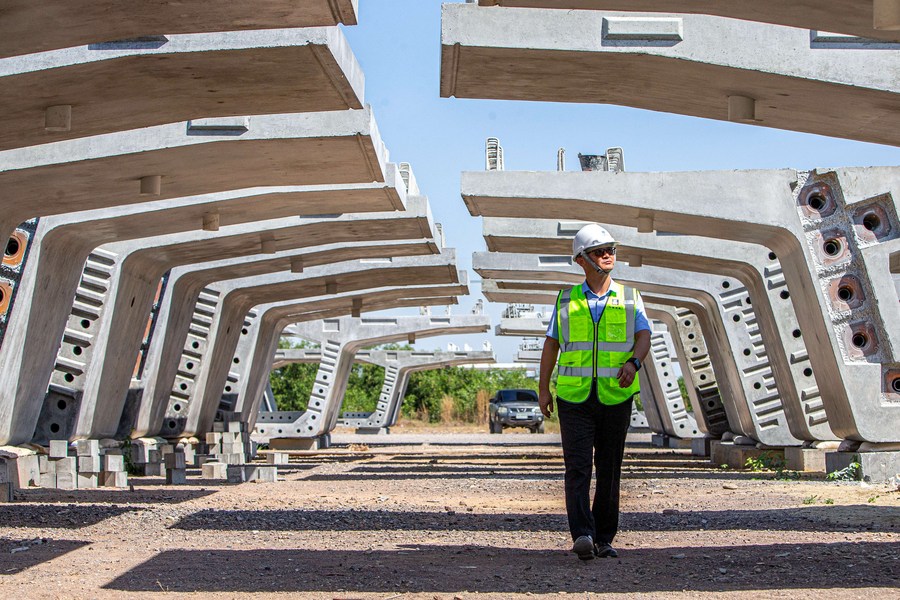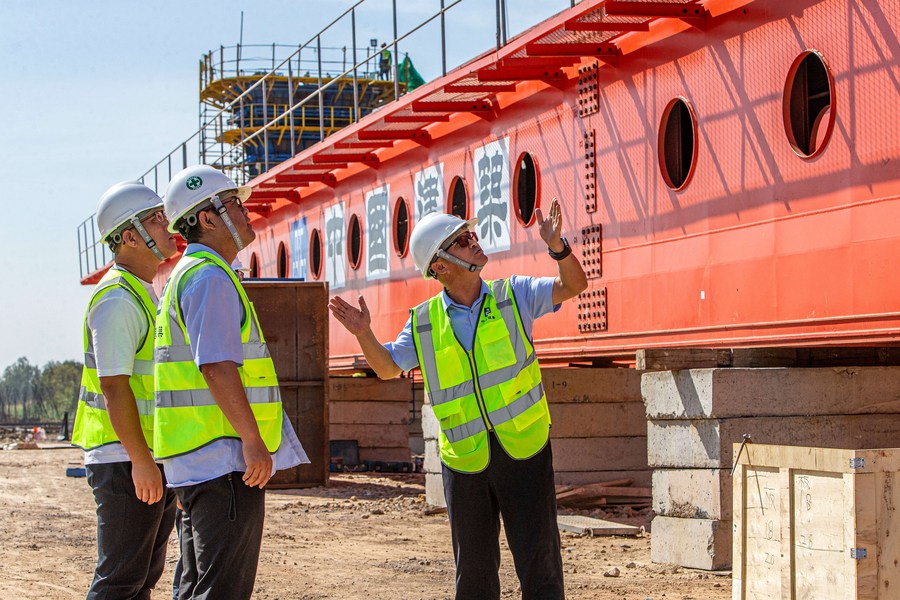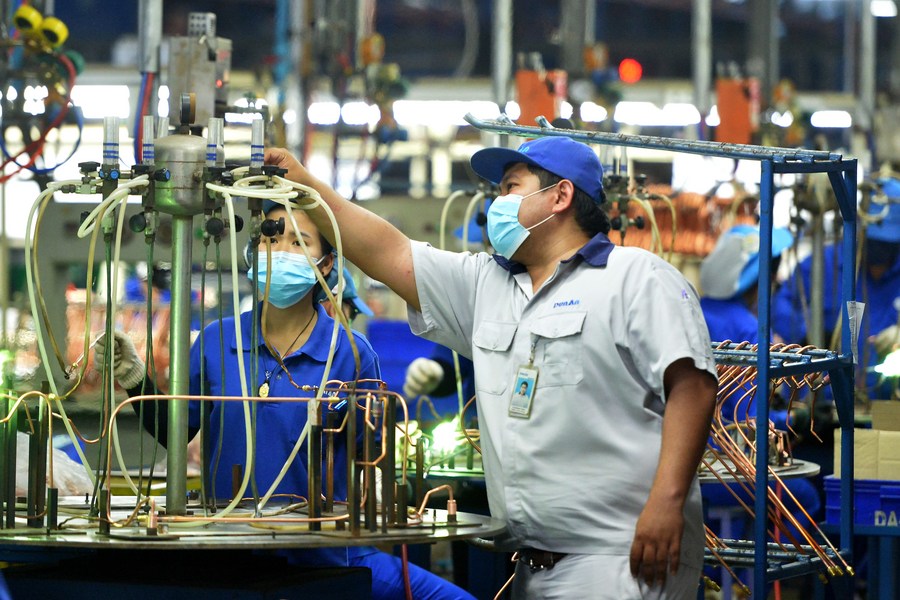(BRF2023) Interview: ASEAN's active engagement in BRI paving the way to prosperity, says Thai business leader

A Chinese overseas builder inspects segmental beams at a construction site of the China-Thailand Railway in Ayutthaya, Thailand, Jan. 19, 2023.(Xinhua/Wang Teng)
Vikrom Kromadit, Chairman of the Thailand-China Business Council, noted that Thailand welcomes advanced technology and science from China and looks forward to green transportation and green energy cooperation.
by Chen Jiabao, Gao Bo, Lin Hao
BANGKOK, Oct. 22 (Xinhua) -- The active engagement of the Association of Southeast Asian Nations (ASEAN) in the Belt and Road Initiative (BRI) has fostered infrastructure connectivity and bolstered trade and investment, paving the way for shared prosperity in the region, a Thai business leader has said.
Vikrom Kromadit, chairman of the Thailand-China Business Council, is a 70-year-old Thai of Chinese descent who has been closely following the progress of the China-Thailand railway and sees the connection of the rail system as a keystone of international cooperation and interconnectivity.
"The China-Laos Railway has launched. Once it's connected with the China-Thailand railway, you can take a train from Bangkok directly to Kunming. It not only facilitates the export of Thai agricultural products like durian but also opens up a swift new route for Chinese tourists to reach Thailand," said Vikrom in a recent interview with Xinhua.
Thailand's role as a transportation hub in the ASEAN region will be reinforced if the China-Thailand railway successfully goes south to connect with Malaysia and Singapore, which would propel economic cooperation between ASEAN and China to new heights, said Vikrom.

Chinese overseas builders inspect a bridge girder erection machine at a construction site of the China-Thailand Railway in Ayutthaya, Thailand, Jan. 19, 2023.(Xinhua/Wang Teng)
This year marks the 10th anniversary of the proposal of the BRI. Over the past decade, there has been rapid growth in trade and investment between China and ASEAN countries. Statistics show that trade between China and ASEAN reached 975.3 billion U.S. dollars in 2022, more than double the 443.6 billion U.S. dollars recorded in 2013. Today, China is Thailand's largest trading partner.
China's robust economic growth has driven global economic development, Vikrom noted.
Vikrom is also the chief executive of Amata Corporation Plc, one of Thailand's major industrial developers. In 2006, his company and China's Huali Group jointly founded the Thai-Chinese Rayong industrial zone.
The industrial zone has attracted more than 230 manufacturing companies and over 30 related businesses from China over a decade, contributing to creating over 50,000 jobs in Thailand, Vikrom told Xinhua.
"Chinese companies in the industrial zone have thrived, achieving a high success rate, and have brought tangible benefits to the local community," said Vikrom, noting the industrial zone has become a prime example of collaboration between Thailand and China.

Natawut Lorboon works at the production line of Dunan Metals (Thailand) Co., Ltd, in the Thai-Chinese Rayong industrial zone in Rayong Province, Thailand, Nov. 8, 2022. (Xinhua/Rachen Sageamsak)
Vikrom said over the past decade since the BRI was proposed, the industrial zone's development has gained momentum, with 70 to 80 percent of companies settling down here after 2013.
He said companies in the zone have shifted from traditional manufacturing to predominantly high-tech industries, such as new energy vehicles, mechanical electronics and pharmaceuticals, over the past decade.
The business leader told Xinhua that carmakers from China have accelerated their overseas presence in recent years.
With its rich technical expertise and well-established industrial supply chain in the new energy vehicle sector, many Chinese automotive companies have invested and built manufacturing plants in the Thai-Chinese Rayong industrial zone, supported by a series of Thai government incentives to support the industry, said Vikrom.
He noted that Thailand welcomes advanced technology and science from China and looks forward to green transportation and green energy cooperation.


